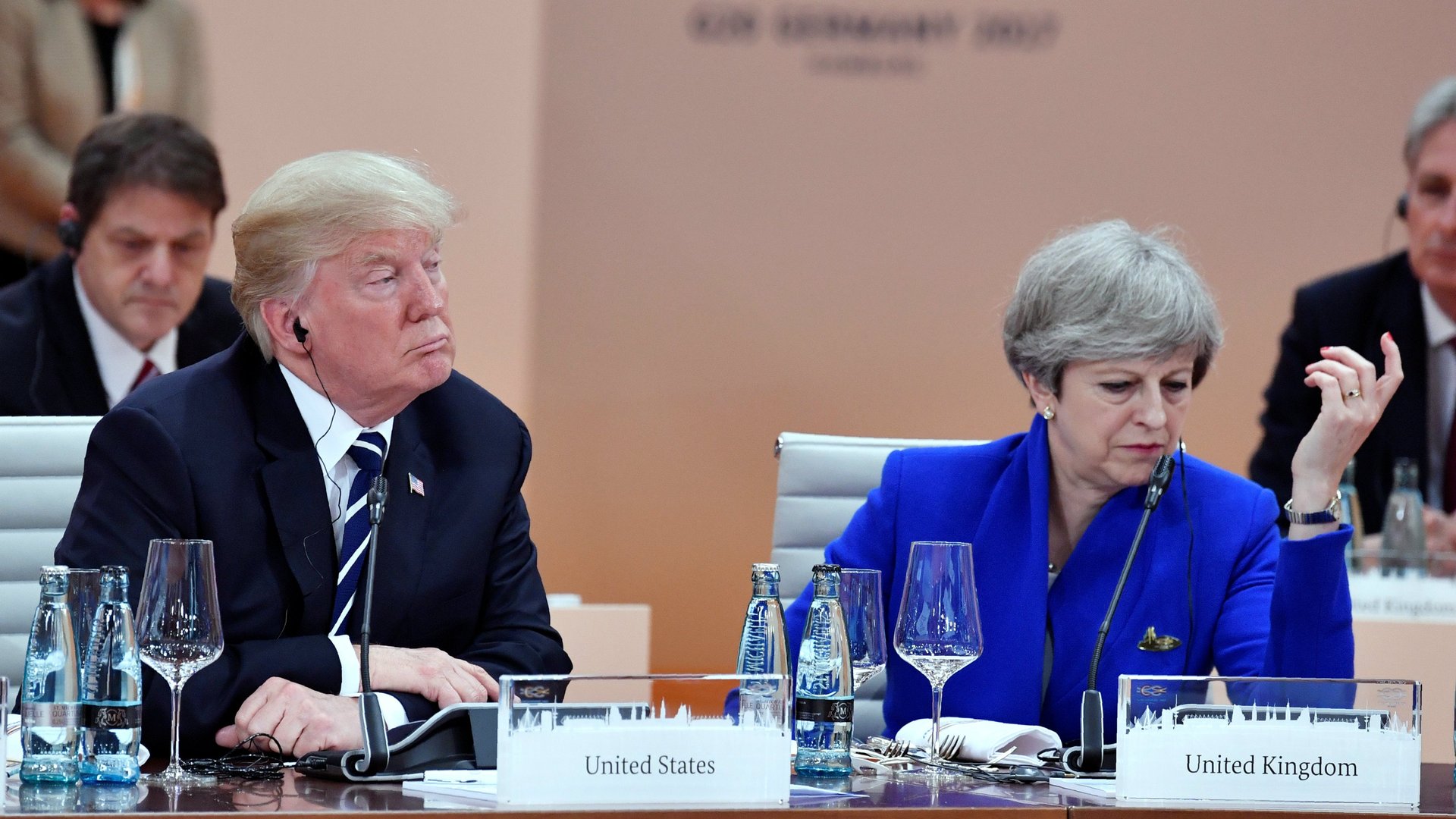The UK and US aren’t keeping pace with the global economic upswing
The International Monetary Fund is getting more optimistic about the strength of the global economy. In new forecasts published today, the organization predicts global growth to be 3.6% this year and 3.7% next year, a small upgrade from previous projections in July. Global GDP growth was 3.2% in 2016.


The International Monetary Fund is getting more optimistic about the strength of the global economy. In new forecasts published today, the organization predicts global growth to be 3.6% this year and 3.7% next year, a small upgrade from previous projections in July. Global GDP growth was 3.2% in 2016.
This growth is unevenly distributed. Among advanced economies, forecasts for the UK and US are becoming more subdued. The IMF didn’t alter its forecasts for the UK, keeping expected GDP growth at 1.7% and 1.5% for this year and next, respectively. Meanwhile, the US economy is forecast to growth 2.2% this year and 2.3% next year, both small upgrades from earlier projections.
Compared with other advanced economies, this growth trajectory is somewhat lackluster. The IMF expects the euro area to grow faster than before, thanks to an increase in domestic demand and trade, and less political uncertainty. Meanwhile, Canadian GDP is forecast to expand by 3% this year as, among other things, oil prices rise. Japanese GDP will benefit this year from fiscal stimulus, though that impact will fade next year and a shrinking workforce will hurt growth further into the future.
Although the US and UK aren’t the slowest-growing advanced economies, the direction of forecasts are problematic. The erosion of confidence in growth is seen even more clearly when compared with the IMF’s forecasts from six months ago.
The downward revision to US growth over the past six months is because of a “major correction” to the IMF’s fiscal policy assumptions, it says. The organization has removed any expectation of tax cuts—and with them potential for higher economic growth—from their forecasts due to “significant” policy uncertainty. Even if it looks, at times, like American legislators might be getting closer to tax reform, the adverse economic impact for many people and infighting among policymakers suggests a deal is far from assured. Over a longer period, the IMF predicts low productivity growth and demographic changes will weigh on long-term growth prospects in the US.
For the UK, the more subdued forecasts are due to growth in the first half of 2017 coming in weaker than expected. Looking ahead, the outlook is “highly uncertain” as it’s still impossible to predict what the UK’s relationship will be with the rest of the EU, its largest trading partner, after Brexit. The extent to which the UK increases barriers to trade, migration, and cross-border financial activity will be the determining factors.
Still, the IMF reports a brighter outlook overall. “The current global acceleration is also notable because it is broad-based—more so than at any time since the start of this decade,” said Maurice Obstfeld, the organization’s economic counsellor and director of research. However, Obstfeld warns that governments can’t miss this “window of opportunity” to push for “ambitious” policies to increase growth, reduce public debt, and spend more on infrastructure and education while the global economy is prospering.
“Policymakers should seize the moment: the recovery is still incomplete in important respects, and the window for action the current cyclical upswing offers will not be open forever,” he said.